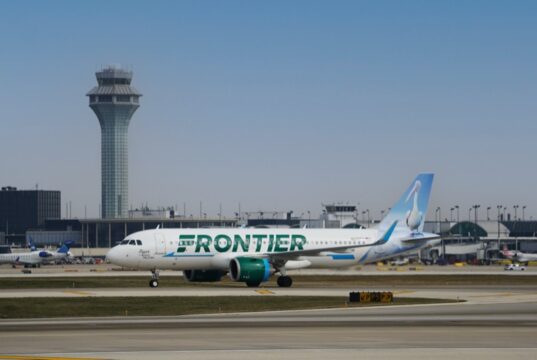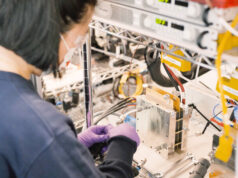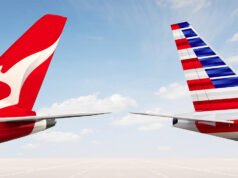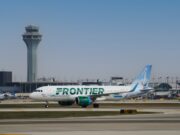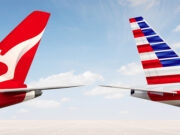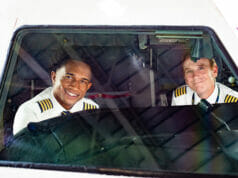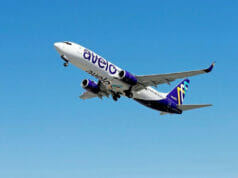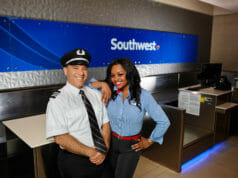Headquartered in Denver, Frontier Airlines is committed to building a culture passionate about winning as it strives to become the nation’s premier low-cost carrier. The company’s hard-working aviation professionals are committed to its unique philosophy of delivering Low Fares Done Right (LFDR) to more than 60 destinations in the United States, Mexico, Costa Rica, Jamaica and the Dominican Republic on over 270 daily flights. One of the tenets of LFDR is to provide customers a reliable and friendly travel experience while offering reasonably priced options.
The current fleet consists of 21 Airbus A320 and 34 Airbus A319 aircraft with an additional nine Airbus A321’s on order with deliveries scheduled to begin in late 2015. The airline also has 80 Airbus A320neo family aircraft on order with deliveries scheduled to begin in late 2016. Frontier Airlines is the proud recipient of the Federal Aviation Administration’s 2014 Diamond Award for maintenance excellence and was recently named the industry’s most fuel-efficient airline by The International Council on Clean Transportation (ICCT) as a result of superior technology and operational efficiencies.
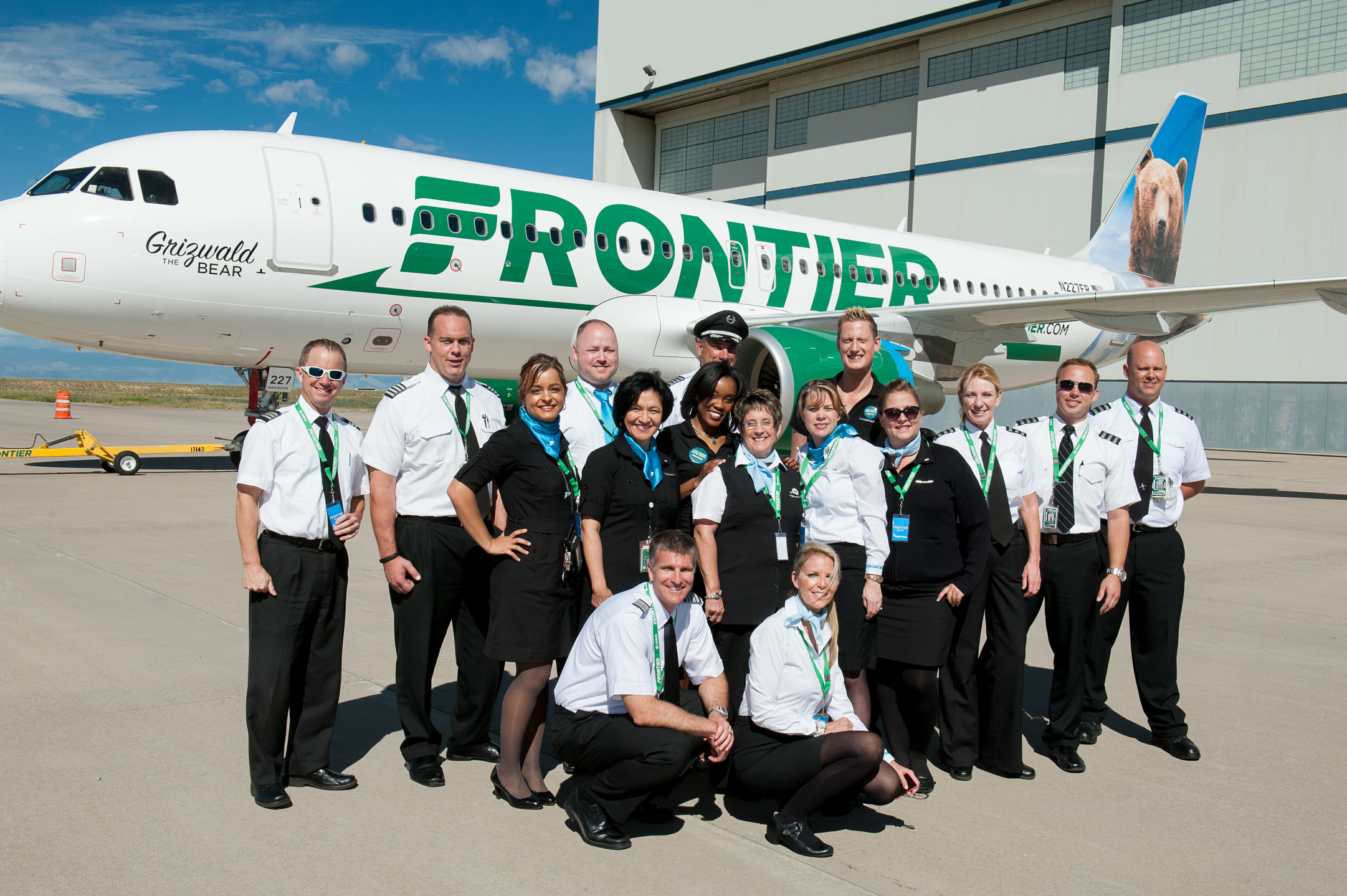
Frontier also offers their flight crews great benefits. Here are a few:
- Flight privelages for you and your family
- Buddy passes for your friends
- Discounts throughout the travel industry
- Medical insurance
- Dental insurance
- Vision insurance
- 401k plan
- Vacation/sick leave
- Defined Contribution retirement account
- (in addition to 401K)
Frontier is seeking team members who are tireless in their pursuit of excellence, dedicated to our company’s success, love the smell of jet fuel in the morning, and like to have fun at work. Visit www.flyfrontier.com and apply online for your new career!
Frontier Airlines originally started serving the mountain west region in the 1950’s. Known for its great service and outstanding safety record, the original Frontier Airlines operated until 19861 when it, like so many of its contemporaries, fell victim to the brave new world of Airline deregulation. Seven years later (1993) several executives from the original Frontier began the process of building a new Frontier Airlines. On July 5, 1994 with 180 employees and two Boeing 737-200s2
, Frontier was reborn.
Frontier quietly grew alongside United in Denver, adding additional Boeing aircraft and expanding their route structure until it stretched to both coasts. Taking lessons from other low-cost carriers, Frontier recognized the advantages of operating a single fleet type. After engaging both Airbus and Boeing, Airbus won Frontier’s new aircraft business with the delivery of the first Frontier A319 (N901FR featuring Wally the Grey Wolf) in May 2001. With the new aircraft came the “A Whole Different Animal” campaign that earned national recognition and made Frontier Airlines a household name.
Timing is everything in aviation, and right now is a great time to apply to Frontier Airlines. With their future growth plans, the potential to be a captain within 2-3 years is again very realistic. There are rumors of a new base opening soon and they seemingly announce new routes each week!
Aero Crew News had the pleasure of working with Frontier’s hiring team and is pleased to bring you an exclusive insight into their interview process. The following is a direct interview with Frontier’s Denver based Chief Pilot, J.P. Thibodeau,
Craig: J.P., can you walk me through a normal day of interviews?
J.P: On a typical interview day candidates can expect to show up no later than 0800 (MST/MDT). At 0800 an hour long presentation reviewing Frontier’s history, our benefits and our expectations is given. This is typically given by a member of our HR staff and me. In the event that I am unable to attend, an Assistant Chief Pilot stands in my place. The presentation itself typically lasts 30 minutes; the remaining 30 minutes are dedicated to a Q&A session. Candidates are highly encouraged to bring their questions. We feel that it is as important for candidates to get to know us as it is for us to get to know them.
At the conclusion of the presentation our candidates congregate in our cafeteria waiting for their interview time “slots.” The Frontier interview consists of two parts; a “panel” interview and a “situational based” interview. Each portion or interview lasts approximately 20 minutes. We place two or three line pilots in the cafeteria to help answer any questions that candidates may have that are specific to flying the Frontier line. Our feedback at the end of the interview day is that this is most helpful and appreciated by the candidates.
Three to four members of our flight operations team and one representative from HR conduct the panel interview. During this portion of the interview process candidates can expect to be asked technical, general and behavioral type questions. A review of the applicant’s certificates, passport and logbook typically occurs during this portion of the interview.
The Situational Based Interview is an exercise wherein candidates are given a flight operations situation that they must manage their way through. The applicant is usually placed in the flight deck of an Airbus mock up and given a few details about the flight that they are about to embark on. At some point during the flight, a situation is introduced giving the applicant the ability to demonstrate to Frontier how he or she would deal with a flight specific issue.
Gouge and homework are encouraged, but applicants should be advised that questions and situations change regularly and frequently so as to try to keep the process as fair for the first candidate as it is for the last.
C: What kind of questions do you ask during the interview?
JP: Mostly what was just explained; situational based questions, technical questions, as well as general “get to know you” type questions.
C: What kind of technical questions should interviewees expect?
JP: Ah yes… the technical questions. What pilot interview would be complete without technical questions? Each pilot is asked approximately six technical questions with topics covering most aspects of professional aviating; aircraft performance and systems, meteorology, the National Airspace System, general airline operations, cartography, etc.
C: What is the biggest error you constantly see interviewees do?
JP: Not answering the question that was asked and/or using too many words to answer the question. Evading the question or becoming too long winded in the response are common errors as well. “Tell us a little about yourself” should be a one or two minute answer, not five to seven. Focus on and highlight your qualities that are applicable to the job or to Frontier.
C: How long does the whole process take?
JP: The interview day typically begins at 0800 and concludes by 1500. We have had a few days that went well past 1500, but they have been the exception, not the rule.
C: Is there a simulator ride?
JP: Not at this time.
C: Do you tell interviewees that they are hired in the spot? Or do you send out a letter after the fact? If so how long can applicants expect to wait to hear a reply?
JP: We typically, although not exclusively, advise candidates on the spot if they have been selected to continue on with the hiring process. As with any Airline, any offer tendered is contingent upon successfully completing a background check, PRIA records review and toxicology screening results. If a candidate is not advised immediately, we try to notify within 3-4 weeks.
C: How long after offered the job offer is the class date?
JP: This varies based on class and interview dates, but generally four to six weeks.
I would like to personally thank JP for working with Aero Crew News in getting this great information out to our pilots.
With the growth opportunities and expansion planned at Frontier, you'll very likely have a life long career and a work environment that you will greatly enjoy. Good luck on your interview and don't be afraid to come say hi to me at the next job fair.
Good luck and fly safe!
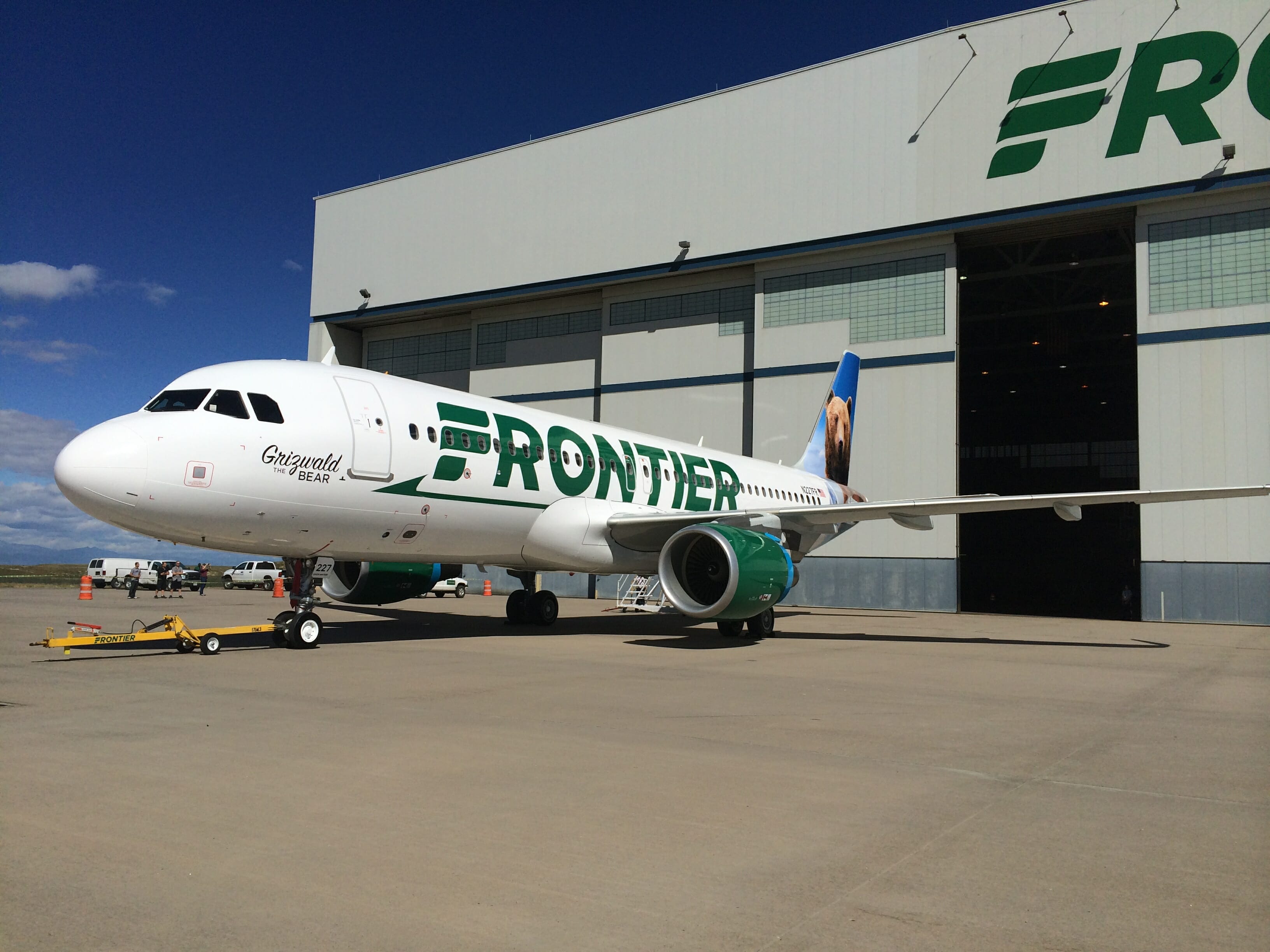
Photo by Frontier

























































